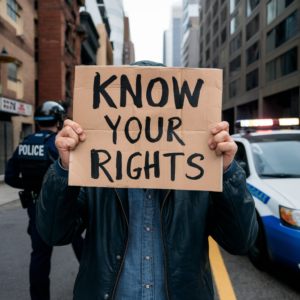You might have heard the term “double jeopardy” on TV shows or in movies that involve courtrooms and legal drama. But what does it really mean? In simple terms, double jeopardy is a legal rule that says you can’t be tried twice for the same crime in the same court.

Why Does Double Jeopardy Exist?
Imagine you’re playing a game, and you lose. How would you feel if you had to keep playing that same game over and over, losing each time? You’d probably think it’s not fair, right? Well, that’s the idea behind double jeopardy. It’s a way to make sure the legal system is fair. Once you’ve been found not guilty of a crime, you shouldn’t have to keep defending yourself for the same thing.
How Does It Work?
Let’s say someone is accused of stealing a car. They go to trial, and the jury decides they’re not guilty. That means they’re free to go, and they can’t be put on trial again for stealing that same car. Even if new evidence comes up later that makes them look guilty, it’s too late—the case is closed.
Are There Any Exceptions?
Yes, there are some exceptions to the double jeopardy rule. For example, you could be tried in a different court, like moving from a state court to a federal court. Or if you’re found guilty but win an appeal, you might have to face a new trial. But generally speaking, once you’re found not guilty, you’re off the hook for that specific crime.
What About Mistrials?
Sometimes, a trial doesn’t finish properly and ends in what’s called a “mistrial.” This could happen if the jury can’t agree on a verdict. In cases like this, double jeopardy usually doesn’t apply, and you could be tried again.
Why Is Double Jeopardy Important?
Double jeopardy is a big deal because it protects your rights. It keeps the government from harassing you by putting you on trial over and over for the same thing. It’s a way to make sure that once a decision is made, it’s final, and you can move on with your life.
Real-Life Examples
You might remember some famous cases where double jeopardy was a key issue. For example, O.J. Simpson was found not guilty of murder in a criminal trial but later faced a civil trial for the same incident. The civil trial was allowed because it’s a different type of court with different rules.
So, to sum it up, double jeopardy is a rule that says you can’t be tried twice for the same crime. It’s a way to keep things fair and make sure that once a case is closed, it stays closed. It’s an important part of the legal system that protects your rights and keeps you from being unfairly targeted.
As an Amazon Associate we earn from qualifying purchases through some links in our articles.




